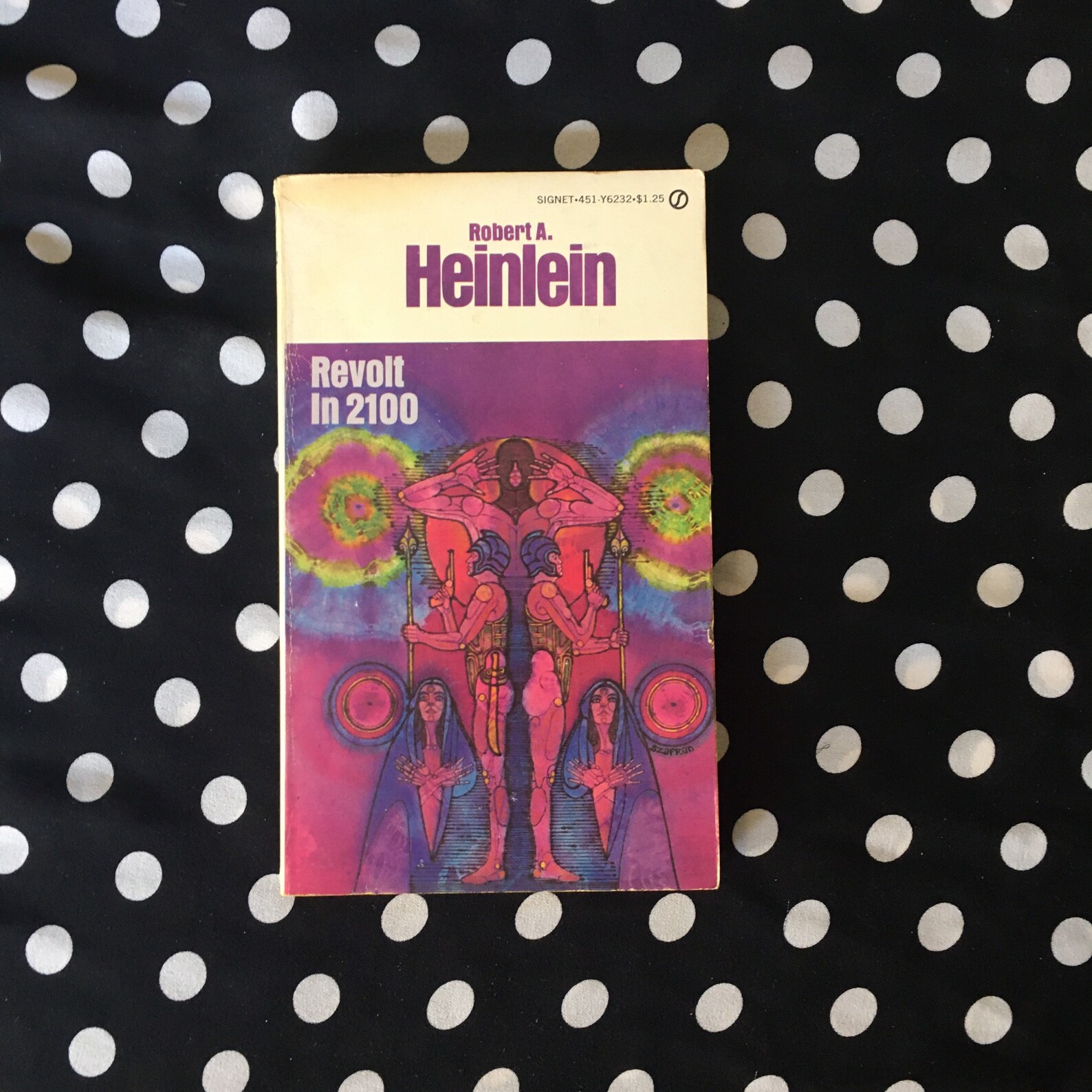


In this case, the scapegoats of the Prophet’s regime, called pariahs, would be parallels for the Jews, homosexuals, Gypsies and other “non-peoples” identified and targeted by Hitler in the Holocaust. Or, more likely, for Adolf Hitler, with the religious element of the Prophet’s regime serving as a parallel to Nazism.

So I was left thinking that, for Heinlein, maybe the Prophet Incarnate was a stand-in for the Japanese emperor and the quasi-religious governmental structure that supported him. But then I realized that Israel was nothing more than a gleam in Zionist eyes in 19 when the novella and the other stories first saw the light of day. I thought at first that maybe Heinlein was thinking about the potential of a faith-centered nation, like Israel, evolving into something repressively rigid. That’s because the novella “ ‘If This Goes On…,’ ” which opens the book, centers on the efforts to overthrow a theocratic, totalitarian United States of America, governed by a Prophet Incarnate. Initially, I wondered if, in 1953, Robert Heinlein had had the still-very-new state of Israel in mind when he published “Revolt in 2100,” a collection of two short stories and a novella.


 0 kommentar(er)
0 kommentar(er)
